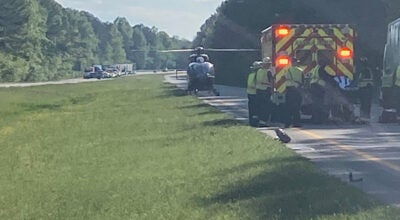State to horse owners: Get animals vaccinated
Published 8:42 pm Saturday, March 31, 2012
The Virginia Department of Agriculture and Consumer Services urges all horse owners to check with their veterinarians for West Nile Virus and Eastern Equine Encephalitis vaccination recommendations for their animals, according to a press release issued this week by the department.
Virginia only had one confirmed case of West Nile in 2011 and no cases of Eastern Equine Encephalitis, although the number of horses affected in previous years and in other states is much higher. State officials are concerned that horse owners may be lulled into inaction by the lack of disease activity last year and neglect vaccination this year.
“Despite a low level of disease activity last year, we still urge horse owners to consider vaccination.” said Dr. Joseph Garvin, program manager for the department’s Office of Laboratory Services. “We never know what mosquito activity will be in any given year, and the bottom line is, these vaccines are very safe and effective. We believe that in most cases, private veterinarians will recommend them for their clients. Horse owners need to be aware that the vaccines require boosters every six to 12 months.”
In an area where the disease occurs frequently, such as Hampton Roads, most veterinarians recommend vaccination every six months. For the vaccine to be effective, it must be handled and administered properly and be given at least two weeks before the horse is exposed to the virus. Additionally, to stimulate full immunity, horses must be vaccinated twice, about 30 days apart, the first year that the horse is vaccinated. Other prevention methods include destroying standing water breeding sites for mosquitoes, using insect repellents and removing animals from mosquito-infested areas during peak biting times, usually dusk to dawn.
Typical symptoms of encephalitis in horses include staggering, circling, depression, loss of appetite and sometimes fever and blindness. There is no cure for these diseases, which can kill anywhere from 30 to 90 percent of the horses infected. Humans cannot become infected by handling an infected horse, nor can a horse acquire the virus from another infected horse; however, the presence of an infected horse in the area indicates that mosquitoes carrying the diseases are present, and those insects pose a threat to both humans and horses.
For more information, contact the Office of the State Veterinarian, Division of Animal Industry Services, VDACS, at 804-786-2483 or visit www.vdacs.virginia.gov. Horse owners should contact their veterinarians for further advice on prevention, diagnosis and treatment.






